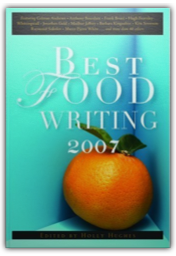
For food lovers, the next best thing to eating is reading about it. Best Food Writing 2001, compiled by Holly Hughes, offers these and other readers the year's most memorable food writing from books, magazines, newspapers, newsletters, and Web sites. Like its predecessor, Best Food Writing 2000, the book is a banquet—51 pieces on food in all its nutritional, gustatory, psychological, sociological, and, in short, personal glory. Dip into the book anywhere and enjoy, for example, Jeffrey Steingarten on bluefin tuna, Molly O'Neill discussing the glories of soup, William Grimes on comfort food, and Coleman Andrews on eating in Rome. Readers also journey to Paris (of course) in the form of Michael Lewis's wonderfully cranky paean to cassoulet (with recipe), and with John T. Edge in his search for the best Parisian Southern fried chicken (it exists); they also follow humorist Calvin Trillin as he seeks desperately for superior ceviche in Peru, Ecuador, and Queens, New York. Also included are excerpts from Ruth Reichl's bestselling Comfort Me with Apples and Patric Kuh's The Last Days of Haute Cuisine. There's more, of course, on topics as diverse as the agonies of dinner-party hosting, a chef's-eye view of dining out, and preparing perfect rice. Ideal for bedtime reading, the book also makes a great gift for fellow foodaholics who can't get enough of their favorite passion. —Arthur Boehm 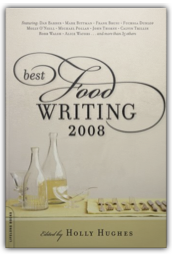
The 9th edition of the annual food writing anthology contains writing from established and rising stars, including Hugh Fearnley Whittingstall, Madhur Jaffrey and Anthony Bourdain. "Best Food Writing 2008" authoritatively and appealingly assembles the finest culinary prose from the past year's books, magazines, newspapers, newsletters, and Web sites. This anthology features both established food writers and rising stars on everything from celebrated chefs to the travails of the home cook, from erudite culinary history to food-inspired memoirs. By turns opinionated, evocative, nostalgic, sensuous, and just plain funny, it's a tasty sampler platter to dip into time and again, whether you're in the mood for foie gras, or fruit cake.Like previous collections, "Best Food Writing 2008" will include writers such as Anthony Bourdain, Frank Bruni, Bill Buford, Hugh Fearnley-Whittingstall, Barbara Kingsolver, Madhur Jaffrey, Jeffrey Steingarten, and many others. 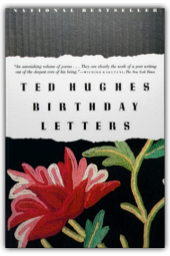
Ted Hughes's Birthday Letters—88 tantalizing responses to Sylvia Plath and the furies she left behind—emerge from an echo chamber of art and memory, rage and representation. In the decades following his wife's 1963 suicide, Hughes kept silent, a stance many have seen as guilty, few as dignified. While an industry grew out of Plath's life and art, and even her afterlife, he continued to compose his own dark, unconfessional verses, and edited her Collected Poems, Letters Home: Correspondence 1950-1963, and Journals. But Hughes's conservancy (and his sister Olwyn's power as Plath's executrix) laid him open to yet more blame. Biographers and critics found his cuts to her letters self-interested, and decried his destruction of the journals of her final years—undertaken, he insisted, for the sake of their children. 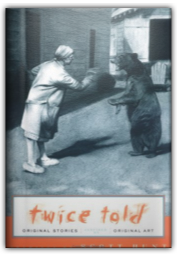
A girl dresses in a bunny costume to earn her dad's approval. . . . A boy bakes a cake and takes out his dad in the same afternoon. . . . These are just two of the offbeat and utterly captivating scenarios readers will find in this collection of stories inspired by narrative artwork. Nine charcoal drawings, each one hauntingly surreal, were the creative spur for eighteen different authors. Pairs of writers were sent the same image and asked to write a story to accompany it. The results are fascinating: some of the couplings are strikingly similar; others couldn't be more different, and all make terrific reading. 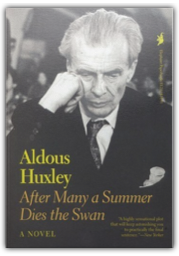
A Hollywood millionaire with a terror of death, whose personal physician happens to be working on a theory of longevity—these are the elements of Huxley's caustic and entertaining satire on man's desire to live indefinitely. |
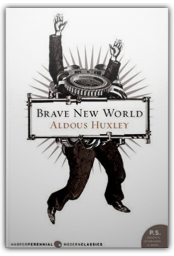
"Community, Identity, Stability" is the motto of Aldous Huxley's utopian World State. Here everyone consumes daily grams of soma, to fight depression, babies are born in laboratories, and the most popular form of entertainment is a "Feelie," a movie that stimulates the senses of sight, hearing, and touch. Though there is no violence and everyone is provided for, Bernard Marx feels something is missing and senses his relationship with a young women has the potential to be much more than the confines of their existence allow. Huxley foreshadowed many of the practices and gadgets we take for granted today—let—let's hope the sterility and absence of individuality he predicted aren't yet to come. 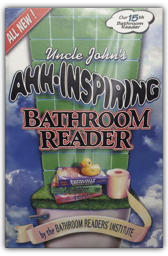
Flush those boring old gifts and give your friends and family something they can really sit down and digest! The Uncle John's Bathroom Reader series is one of the longest-running, most popular humor collections in the publishing industry. It taps into a vast resource of forgotten readers — the 66 percent of North Americans who admit to reading in the bathroom. It's our 15th year and we're still going strong! 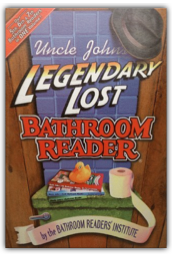
Yep! These high-demand editions are finally back in print! This lighthearted, easy-to-read collection of facts, quotes, history, science, word origins, pop culture, gossip, humor, and more is organized by length: Readers can spend a minute with the Quickies, relax with Normal-Length articles, or really get cozy with Long Items. 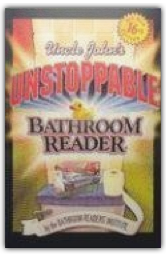
Now in its 16th year, The Bathroom Reader which seems to have replaced the tie as the most popular Father's Day gift idea has become a movement, with satisfying, easily digested new selections sure to wipe away bathroom boredom. Handily arranged by length "short" (a quick read), "medium" (1 to 3 pages), and "long" (for those extended visits) the book covers everything from Americana to The Name Game to Pop Science and Wordplay. Readers can learn the origins of superglue, sample news stories about underwear, read about animals famous for 15 minutes, and learn of unknown heroes of the Wild West. This broad assortment eliminates ennui while wittily educating readers trapped in airports, cars, buses, or lavatories. 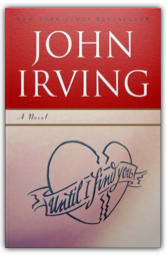
At over 800 pages, John Irving's Until I Find You is a daunting proposition at best. Anyone who finishes it will have acquired forearm muscles, sore shoulders, and not much else. The story is self-indulgent, repetitive and, ultimately, boring, that cardinal sin that readers can't forgive. Longtime Irving readers have stayed with him through a few hits and a miss or two, but this is an all-time low. We are accustomed to Irving's work as quirky, bizarre, and off-the-wall and have forgiven all by calling such high-jinks and characters "imaginative" or "absolutely original." The only thing original about this tome is the descent into soft porn. 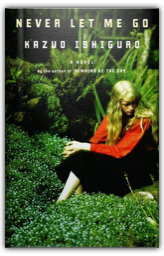
All children should believe they are special. But the students of Hailsham, an elite school in the English countryside, are so special that visitors shun them, and only by rumor and the occasional fleeting remark by a teacher do they discover their unconventional origins and strange destiny. Kazuo Ishiguro's sixth novel, Never Let Me Go, is a masterpiece of indirection. Like the students of Hailsham, readers are "told but not told" what is going on and should be allowed to discover the secrets of Hailsham and the truth about these children on their own. |

My Library
Collection Total:
1390 Items
1390 Items
Last Updated:
Mar 22, 2009
Mar 22, 2009

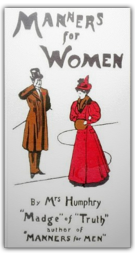
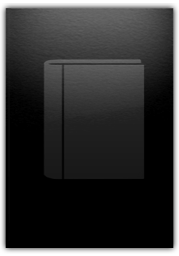
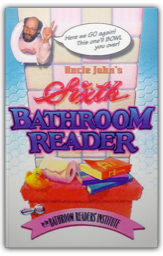
 Made with Delicious Library
Made with Delicious Library